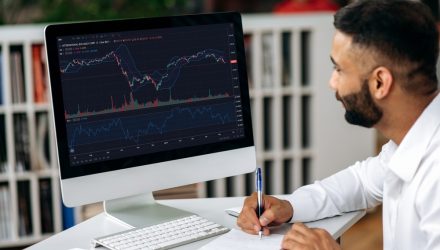The reality of Fed tightening and the concerns around recession, and the Fed’s willingness to allow for it to fight inflation saw markets bleed on Thursday, giving up all the gains they made briefly on Wednesday in the biggest about-face since the onset of the pandemic, reports the Wall Street Journal.
Tech stocks were some of the hardest hit; the Nasdaq Composite dropped 5%, the S&P 500 was down 3.6%, and the Dow declined 3.1% (1,063 points). On the flip side, bond prices fell as yields rose, with the 10-year Treasury note yield crossing back into 3% territory to 3.066%.
“We struggle to see who is going to be a massive buyer of equities in the next couple weeks,” Viraj Patel, global macro strategist for Vanda Research, told WSJ. “It’s a waiting game for that catalyst…You need more conviction from the data, either to show that inflation has topped out or the economy is slowing and that the Fed won’t need to be as aggressive.”
Non-Correlated Performance Opportunities with DBMF
As advisors and investors either move to cash or seek alternatives, one option to consider is managed futures. The iMGP DBi Managed Futures Strategy ETF (DBMF) is designed to attempt to capture performance no matter how equity markets are moving. The fund seeks long-term capital appreciation by investing in some of the most liquid U.S.-based futures contracts in a strategy utilized by hedge funds.
DBMF allows for the diversification of portfolios across asset classes that are uncorrelated to traditional equities or bonds. It is an actively managed fund that uses long and short positions within derivatives, mostly futures contracts, and forward contracts. These contracts span across domestic equities, fixed income, currencies, and commodities (via its Cayman Islands subsidiary).
The position that the fund takes within domestic managed futures and forward contracts is determined by the Dynamic Beta Engine. This proprietary, quantitative model attempts to ascertain how the largest commodity trading advisor hedge funds have their allocations. It does so by analyzing the trailing 60-day performance of CTA hedge funds and then determines a portfolio of liquid contracts that would mimic the hedge funds’ performance (not the positions).
DBMF takes long positions in derivatives with exposures to asset classes, sectors, or markets that are anticipated to grow in value and takes short positions in derivatives with exposures expected to fall in value. Under normal market conditions, the fund seeks to maintain volatility between 8-10% annually.
According to the website, DBMF has a 24.01% return as of May 4, 2022, with a management fee of 0.85% and an additional ten bips for other expenses listed in the prospectus.
For more news, information, and strategy, visit the Managed Futures Channel.

